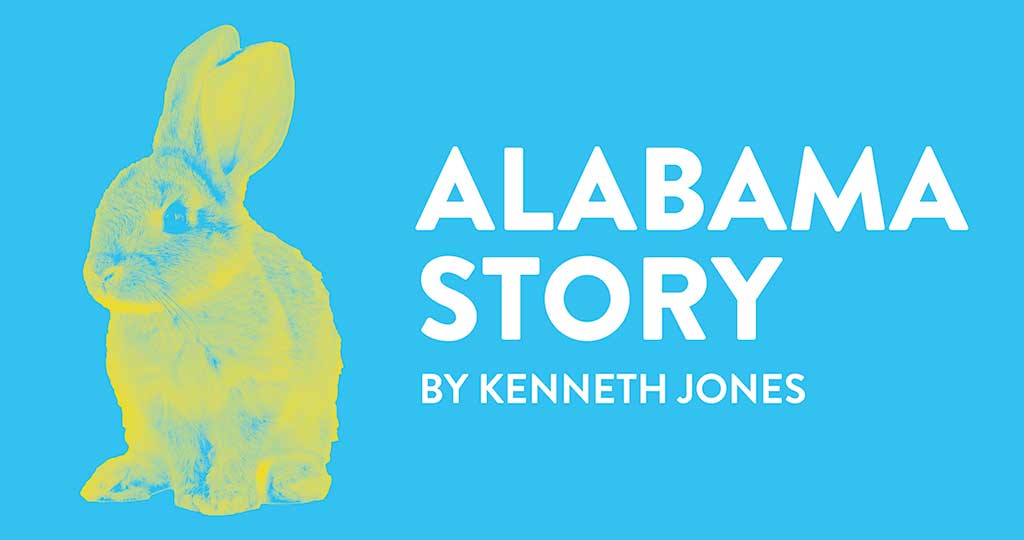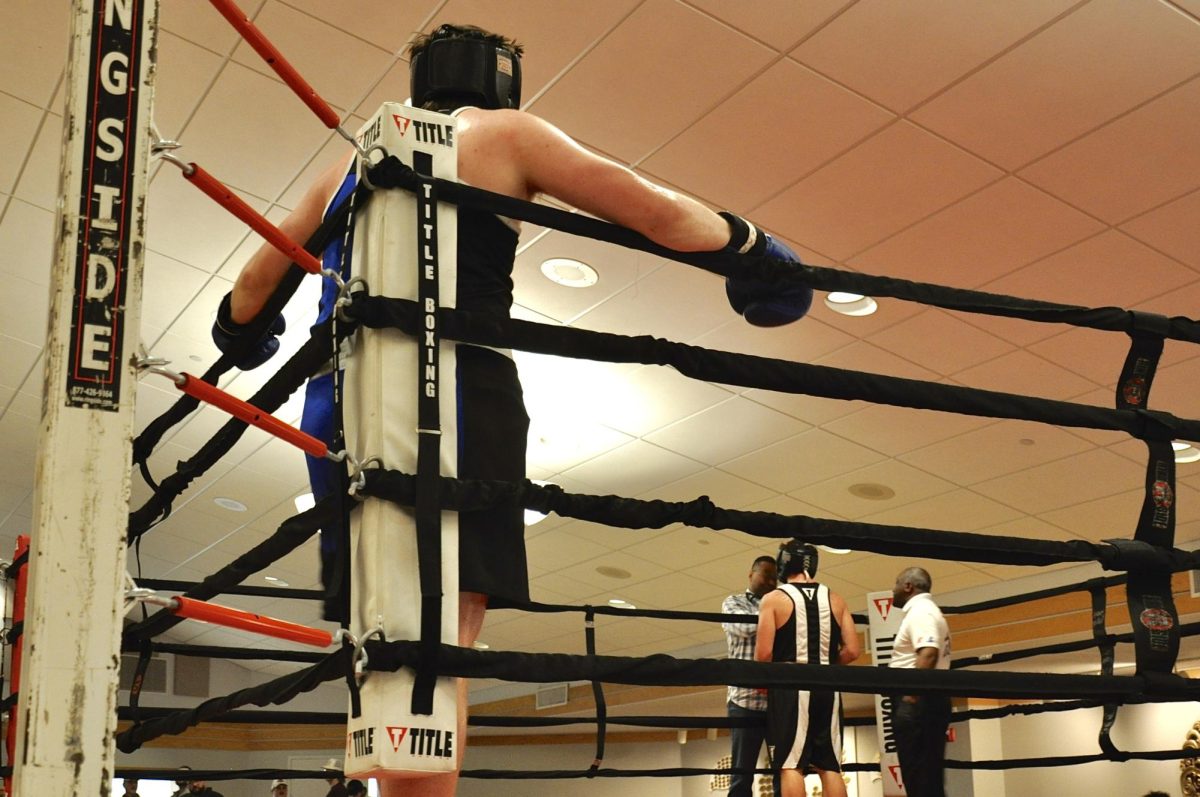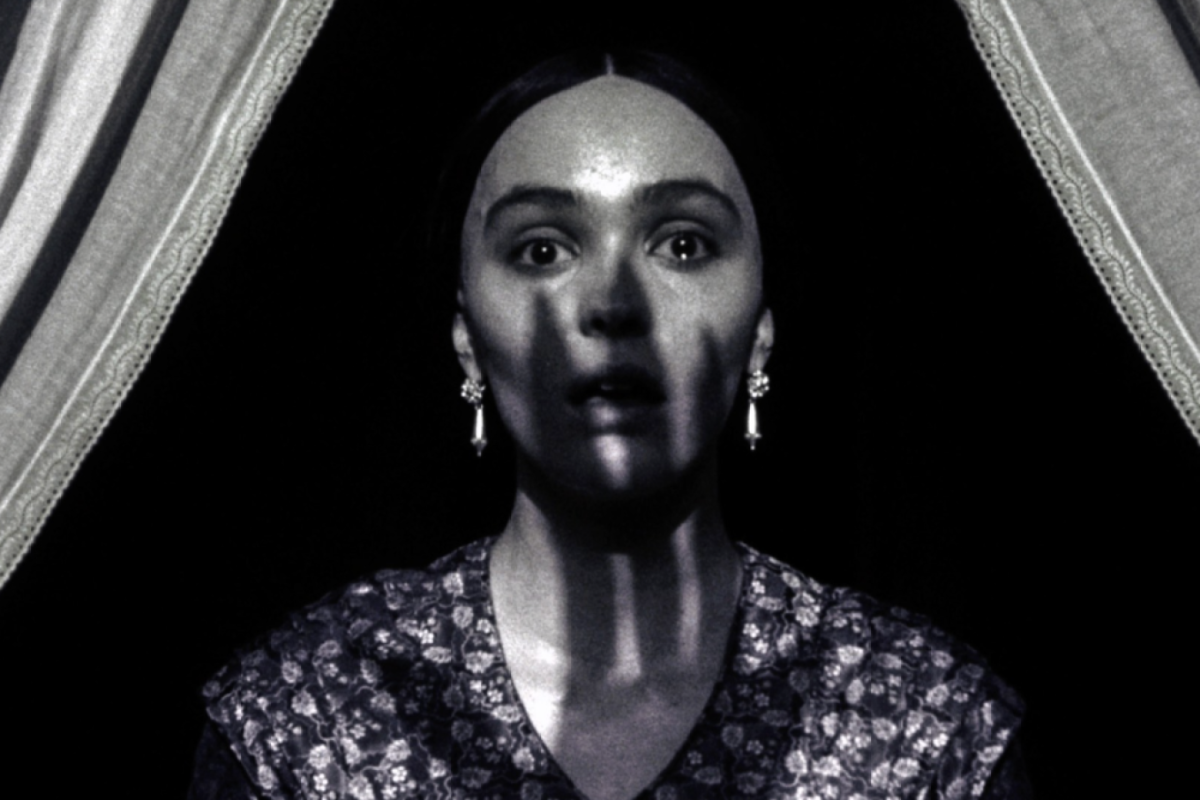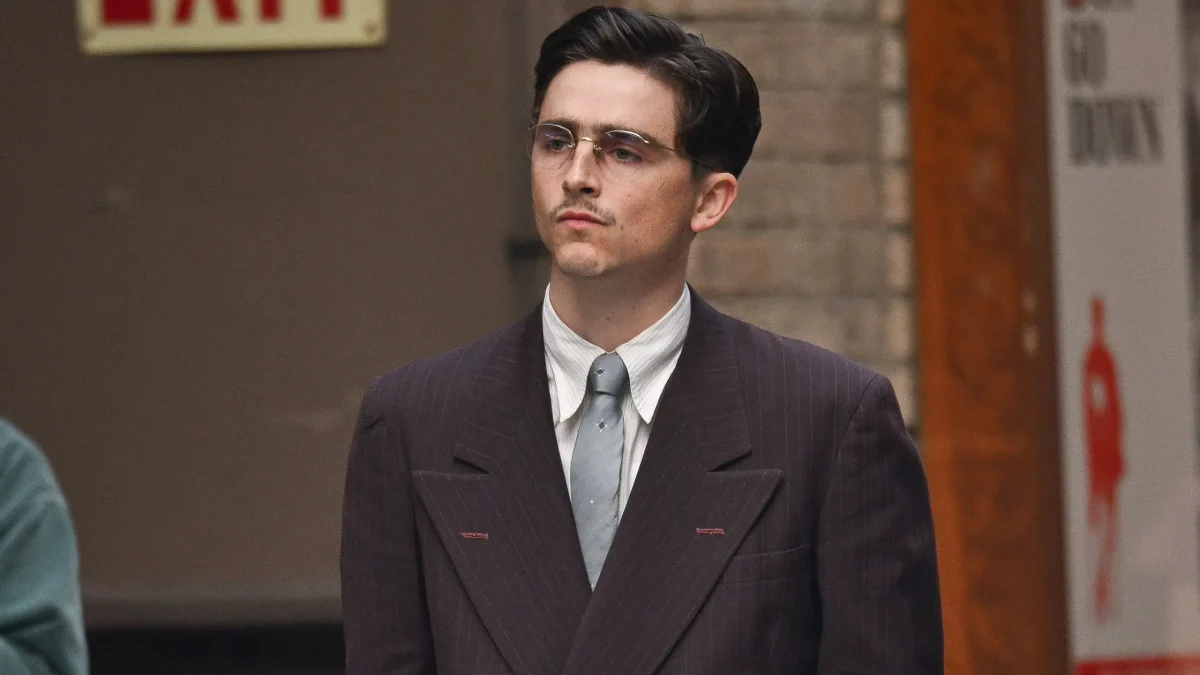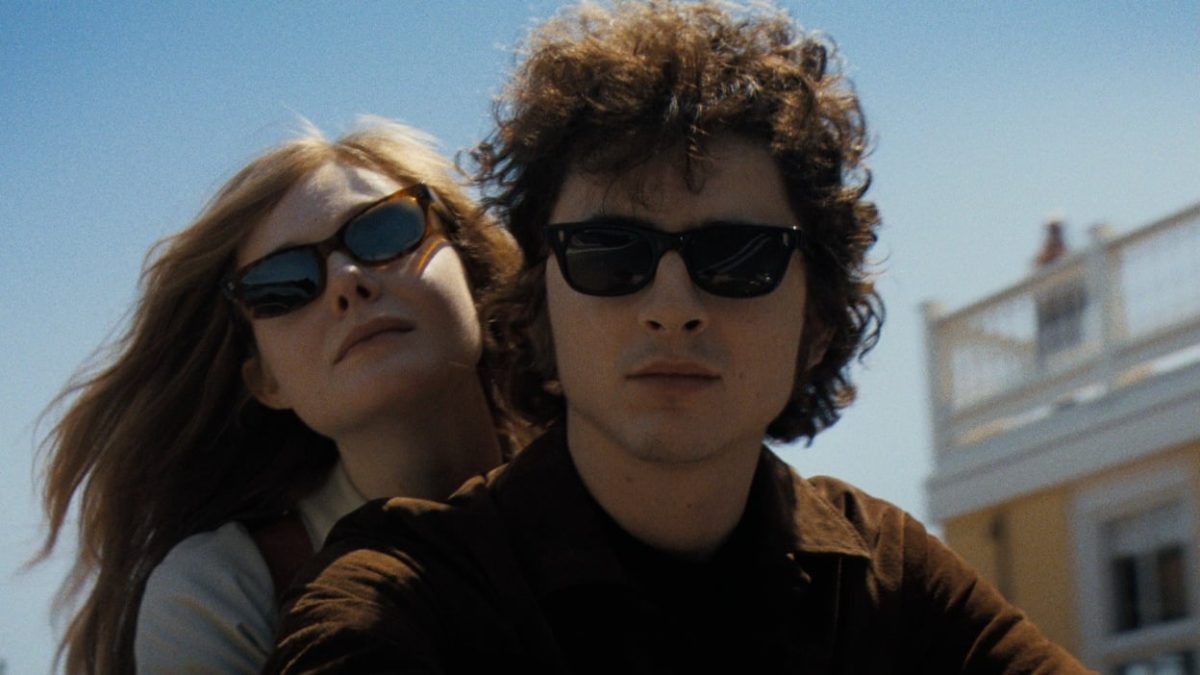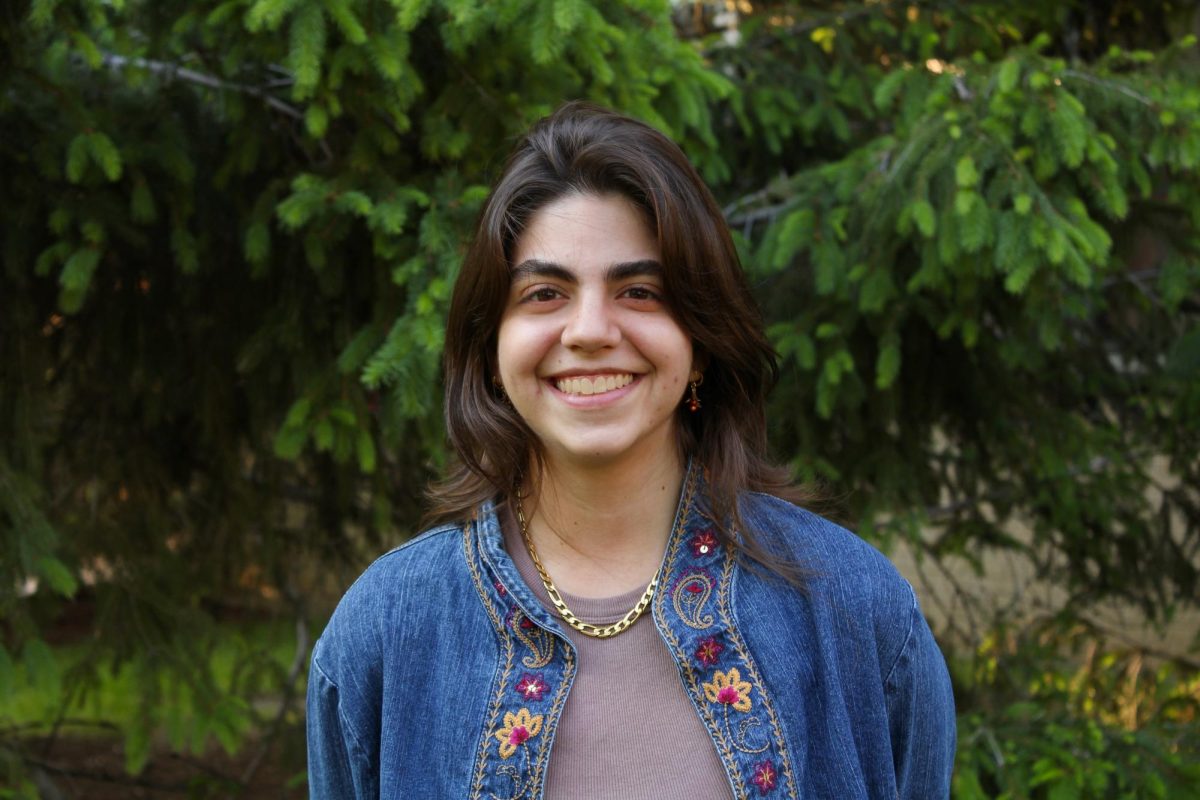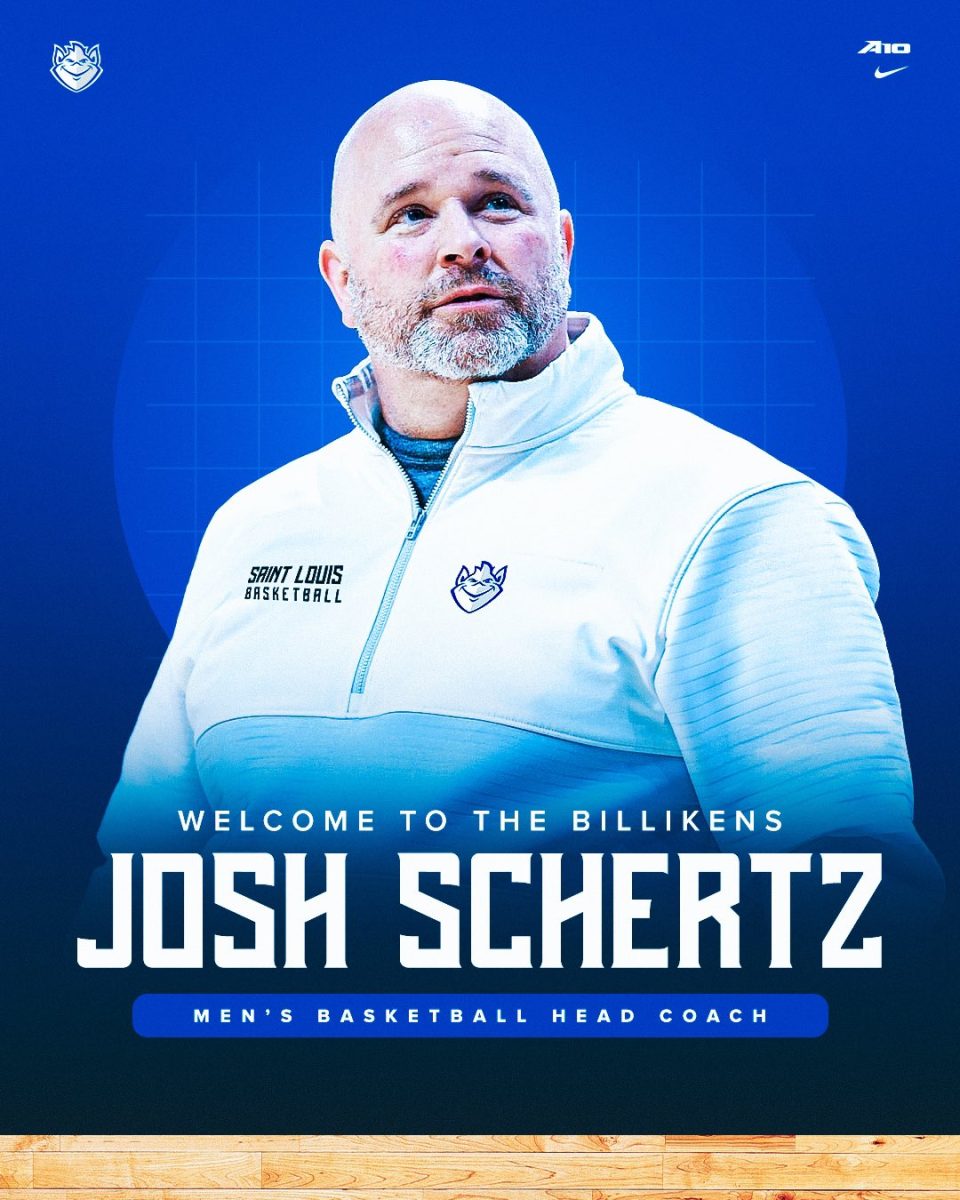Coinciding with the American Library Association’s Banned Books Week, the SLU Fine & Performing Arts department showcased three productions of Kenneth Jones’ critically acclaimed “Alabama Story” at The Grandel, a warm playhouse in the Grand Center Arts District.
The play explores two concurring stories taking place in a segregated, 1950s Montgomery, Alabama. When a children’s book featuring a marriage between a black rabbit and a white rabbit finds its way onto the shelves of the Alabama State Library, hard-nosed librarian Emily Wheelock Reed (Margaret London Kimble) faces off against the southern-charmed, bigoted Senator E.W. Higgins (Cameron Schoeck). Simultaneously, the play tells the story of two childhood friends, Joshua Moore (Russell Marvel Hooker Jr) and Lily Whitfield (Morgan Schindler), on whom racial tensions fall.
By centering the story around a fictional banned book, the play makes a deliberate statement on the freedom to read. Director Nancy Bell expressed the relevance and necessity of the play’s potency on the issue.
“It’s just, unfortunately, extremely relevant now with all the things that are happening in our state legislature, restricting the teaching of critical race theory and the restriction of the ‘Don’t Say Gay’ law in Florida, and so many other laws that restrict what children can be exposed to. And this, the kind of hysteria around children’s literature right now, is identical to this. If you just replace the issue of race with trans liberation, it’s the identical thing that’s happening, and the same rhetoric: unbelievably similar rhetoric,” said Bell.
With standout performances from Kimble and Schoeck, the play maintains an interplay of scenes with alternate dialogical sequences between the two stories.
The set design encourages this entanglement, hosting three pieces: a park bench, an office and a table in the State Senate. While Reed and Higgins may be engaged in a confrontation in her office, a conversation between Joshua and Lily takes place mere feet away. While the two scenes interact both thematically and spatially, the viewer still maintains the impression that these scenes are happening in separate locations allowing them to draw their own parallels between the two narrative themes.
Director Nancy Bell believes the set design, created by Joe Stafford, the Technical Director, is incredibly well-suited for the narrative complexity of the play.
“The play very much has these different worlds that are completely separate, but they bleed and interact magnetically. So, we created a set where we could physically enact [that],” said Bell.
While the play’s overt tones of racism and segregation establish the potency of its discussion on freedom, its subtle, clever allusions and balanced humor take up much of the work on this front.
At the beginning of the play, when Joshua and Lily first encounter each other, Lily’s jacket sits on the park bench for the duration of their conversation. At the end of the scene, when Lily removes her jacket, a large “Whites Only” sign shows on the bench.
Although every character in the play utilizes humor to diffuse the heavy topics, Thomas Franklin (Jack Rimar), the assistant to Ms. Reed and Garth Williams (Jake Santhuff), the author of the children’s book, voice it the most.
Avery Downes, a SLU student in attendance at the play, greatly enjoyed the humor which underlined the play’s serious concerns.
“I really loved the small bits of humor that are in this really complicated and deeply saddening story, if you really look at what the plot is going through. But at the same time they use humor to lead the audience through it in a way that makes the story more approachable,” said Downes.
Overall, “Alabama Story,” set in a deep south of the imagination, explores an increasingly relevant topic through the lens of a bygone institution. With brilliant performances by the cast and an amazingly apt set design, the play is a strong start to the year for the Theatre & Dance Department.
The department will showcase performances of:
“Our Town” by Thornton Wilder from Nov. 16 to 19
“Dreaming of Lear: A Devised Work” from Feb. 29 to March 3, 2024
“Dream Scape: Dance Concert” from April 26 to 28, 2024




